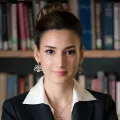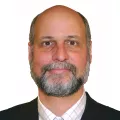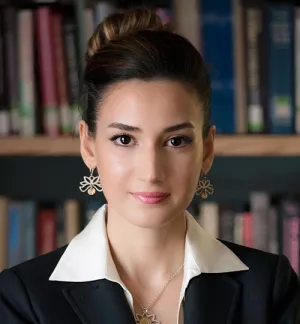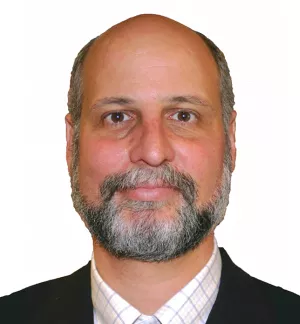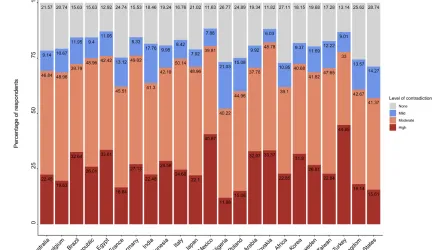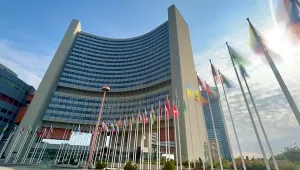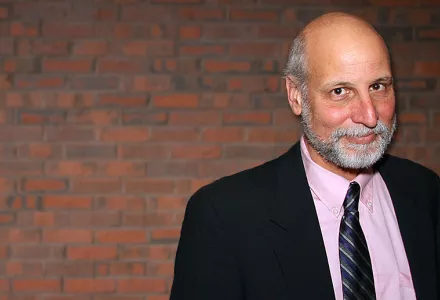
Sustaining Security Studies With a Legacy of Mentoring
This article was published in the June 2020 issue of Arms Control Today.
An outstanding scholar, extraordinary mentor, and a community builder, Martin Malin passed away on April 19. His warmth, humility, and kindness made him more than a colleague and a close friend to many.
Professionally, he will be most remembered for 13 years as executive director of the Project on Managing the Atom at the Belfer Center for Science and International Affairs at the Harvard Kennedy School. He made the project feel like a home for countless students and fellows he mentored and trained throughout his career. It is rare to meet a scholar from the nuclear policy community who has not known Marty. The mere mention of his name will bring a smile across the face of all who knew him.
Before the project, Marty studied political science in graduate school at Columbia University, where he received a master’s in international affairs, a doctorate in political science, and was editor-in-chief of Journal of International Affairs. Later, he directed the Program on Science and Global Security at the American Academy of Arts and Sciences, where he chaired the Committee on International Security Studies and helped to implement many of the committee’s tasks and ventures. He co-authored War With Iraq—Costs, Consequences and Alternatives and co-edited the book series American Academy Studies in Global Security.
Marty participated in numerous other studies, including co-authoring and co-editing on issues of nuclear terrorism, nuclear weapons, black market nuclear trade, nonproliferation, and a nuclear-weapon-free zone in the Middle East, about which he was truly passionate.
His most profound legacy will be his impact on the many scholars he mentored. He truly believed that, with sound scholarship and by empowering generations of scholars in the nuclear field, we can hope to tackle the world’s problems.
I met Marty when I joined the Project on Managing the Atom as an intern in 2008. Along with Matthew Bunn and Steven E. Miller, he built the project with a great sense of community and encouragement for all those around him. For many of us fellows at the project, this community became a place we could call home during our brief time there. I returned to Belfer again in 2010 as a pre-doctoral fellow and from 2016 to 2018 as a postdoctoral fellow. For international fellows in particular, he cared deeply about ensuring they had a second home. From lending an ear when I felt homesick to helping me navigate the U.S. health care system to providing writing and editing support to those who did not speak English as their first language, he was always there to support fellows.
Through his mentoring, Marty encouraged all those around him to speak up, to write, and to collaborate without ever making anyone feel pressured to do so, giving voice to those whom he mentored. He especially cared to encourage the diversity of this voice from underrepresented scholars, including women, international students, and those from different ethnic backgrounds.
As a mentor, Marty was generous with his time to support our professional and personal endeavors, always there and willing to listen. He helped us to find our own way in a field that can present a puzzling number of career paths. Marty held our hands through difficult times, provided us with opportunities to grow, and celebrated our achievements, simply giving us his genuine unconditional support.
In 2017, I was in the process of becoming a U.S. citizen at the same time the Trump administration issued its first round of travel bans, which included my home country of Iran. I was becoming a citizen of a country that would not allow my family to visit. The process was an emotional rollercoaster, and Marty was so supportive and understanding during that arduous time. It was because of genuine people like him that I thought I should feel proud to become a U.S. citizen. Marty gave hope and confidence that what we all do matters and that if we work together, we can truly make the world a better place.
Mahsa Rouhi is a research fellow at the Nonproliferation and Nuclear Policy Program at the International Institute for Strategic Studies.
Rouhi, Mahsa. “Martin B. Malin (1961–2020).” Arms Control Today, June 2020

